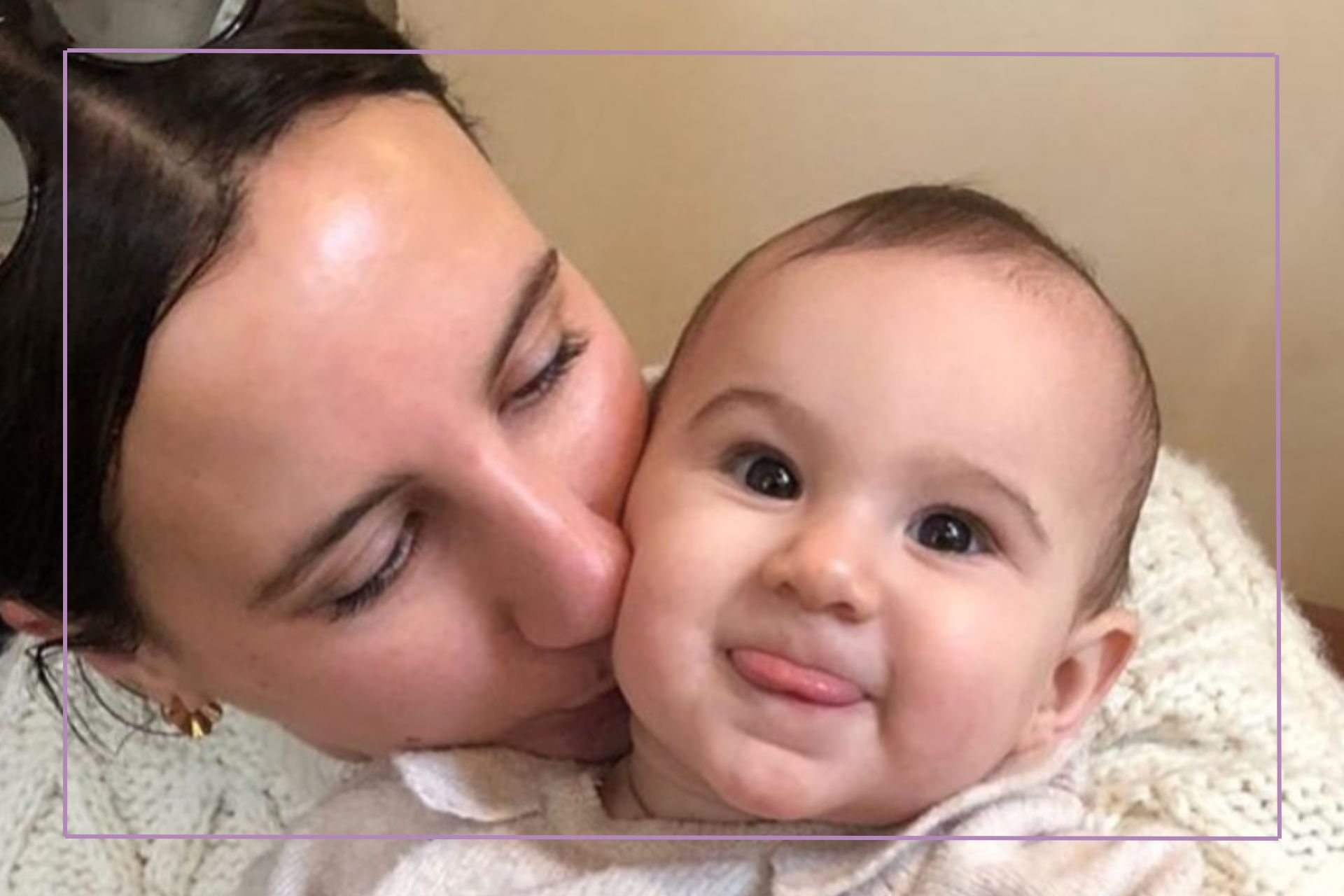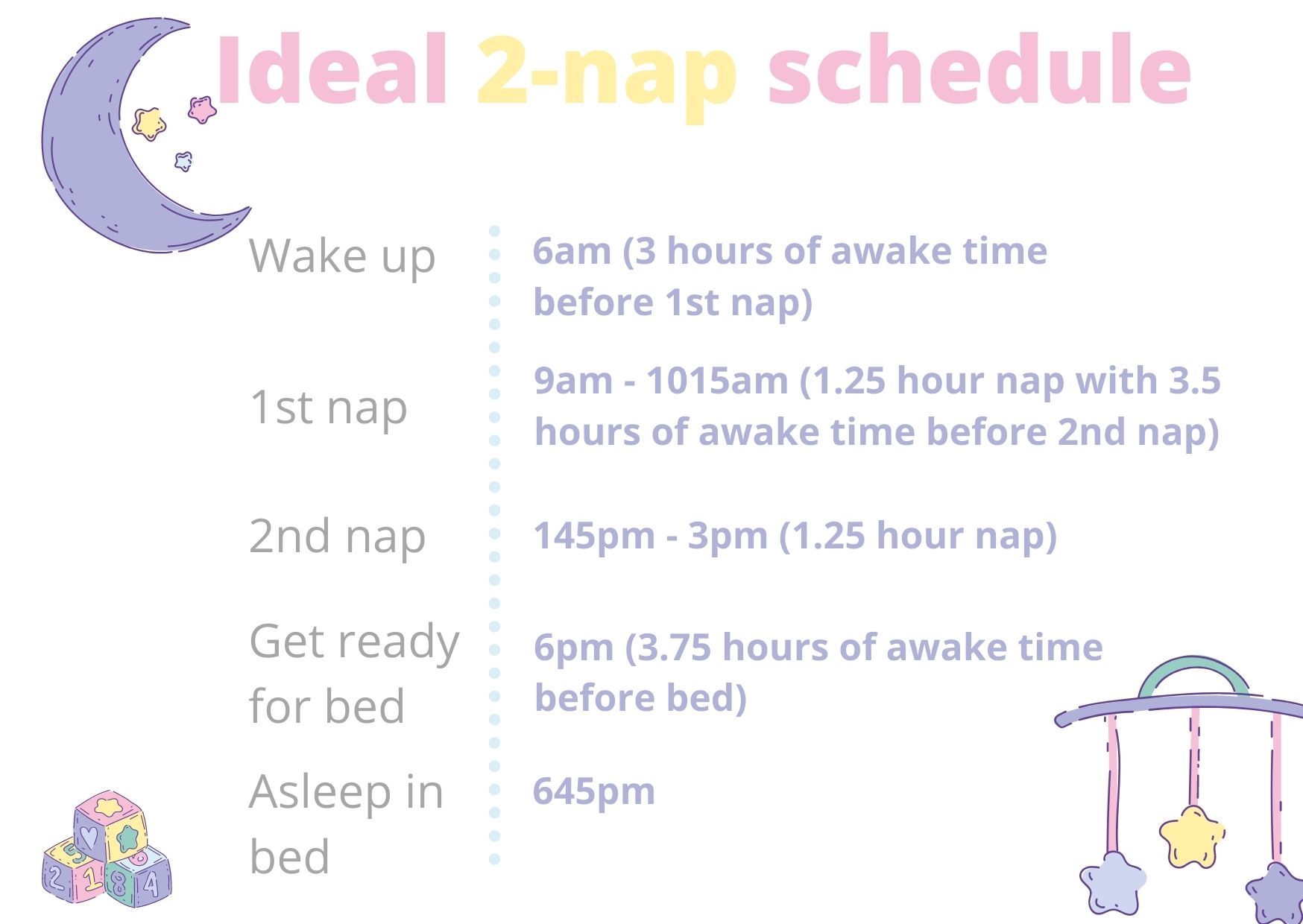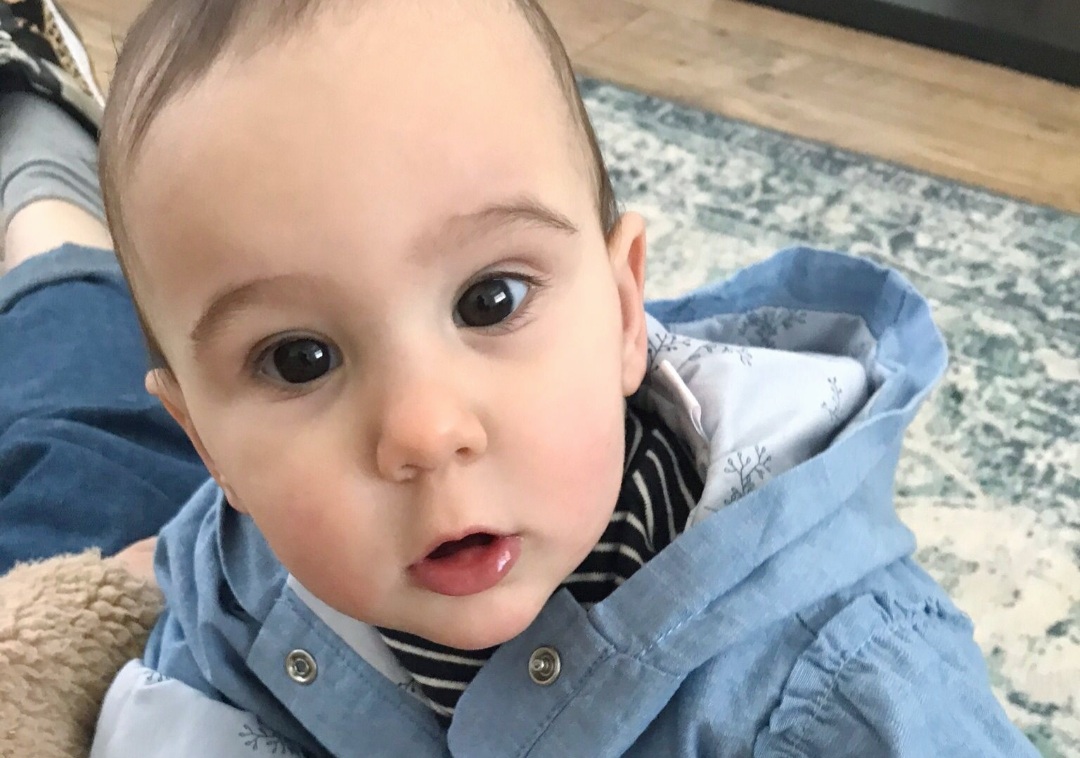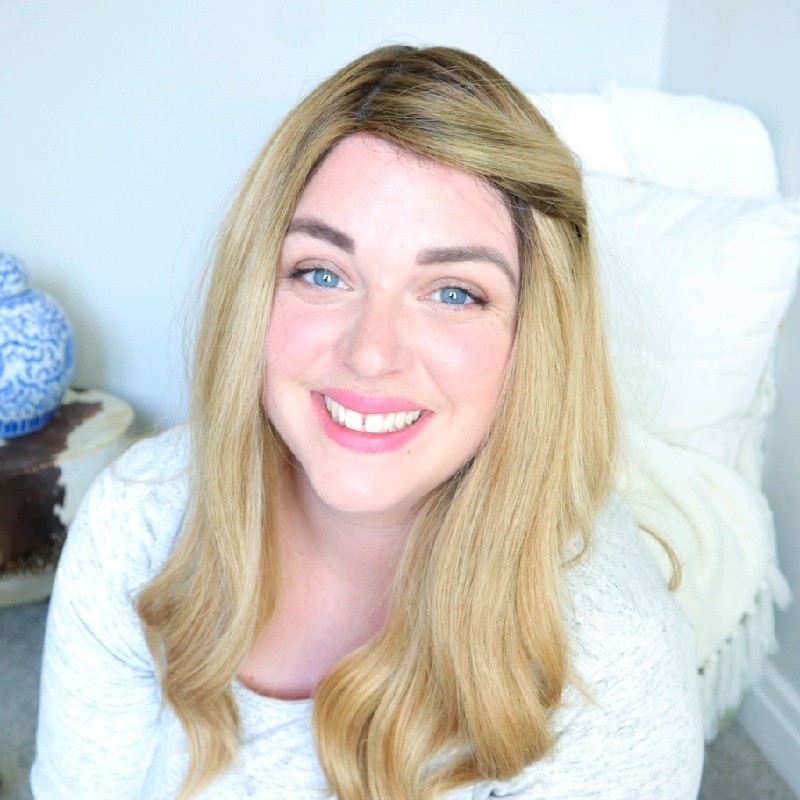10 month sleep regression causes, signs - and how I survived it
The 10 month sleep regression is a toughie, the experts and a mum-of-one share their top tips on how to navigate it


- 10 month sleep regression signs
- How long does the 10 month sleep regression last?
- How I dealt with the 10-month sleep regression
- The 10-month sleep regression - here's how we survived it
- The 10-month sleep regression: Sleep schedule before regression
- The 10-month sleep regression: Sleep schedule during regression
- What I learned about the 10-month sleep regression
The 10 month sleep regression is a phase in your baby's development where they may experience disruptions in their sleep patterns. It usually happens when your baby is making a developmental leap. This can cause shorter naps, or no naps, extreme fussiness at bedtime, and frequent waking throughout the night.
Around this age there's a lot going on cognitively - the mental process of thinking and understanding. And all of these changes can affect babies' sleep. It can be frustrating, especially if you bought the best baby monitor, read all the books, and listened to all the podcasts, and yet your baby is still struggling to sleep. You're not alone - many parents wonder when do babies sleep through the night.
Sleep expert Sarah Patel tells us, "The crux of all this is that as a mum, you have to trust yourself and your instincts. You know their baby better than anyone else."
Early years expert Sophie Pickles is also quick to reassure sleep-deprived parents, "Sleep regressions are tough for both babies and parents alike. However, the good news is that they don’t last forever!"
Here writer and mum-of-one, Carla shares her experience of dealing with the 10-month sleep regression.
10 month sleep regression - what is it?
It's a progression in your baby's development. During this phase, your baby is learning and practising lots of new skills. The 10-month sleep regression means they are learning, growing and developing. We know it's exhausting, but it's a good thing, we promise. And it's temporary, lasting from two to six weeks.
The 10-month sleep regression is also down to physical changes. Firstly, your baby is becoming increasingly more mobile, maybe pulling themselves up or trying to walk.
Parenting advice, hot topics, best buys and family finance tips delivered straight to your inbox.
Secondly, they are now able to hold things and reach for things. So they’re spending a lot more energy practising this new skill. In addition, studies show that your baby is grasping the concept of object permanence. They understand that if an object (i.e. you) is out of their sight, the object is still there, even if they can’t see it. Understanding object permanence means separation anxiety, which in turn can mean that they can't sleep if you're not there.
Sarah Ockwell-Smith, a parenting expert, trained psychologist, and author of The Gentle Sleep Book, told us, “New parents assume that their baby’s sleep starts off really bad then gets progressively better. Until at some point, it becomes ‘good’ like that of an adult. The trouble is, life doesn’t work like that.” If only. Below we share the three primary causes:
- Physical milestones - such as sitting up or crawling
- Mental development - noticing that certain objects, sensations, animals, and people belong together in categories
- The 3 to 2 nap transition - dropping that third nap
10 month sleep regression signs
- More nighttime waking
- Difficulty getting off to sleep at bedtime or after a nighttime waking
- More fussiness, crying, or agitation around bedtime
- Longer daytime naps and less nighttime sleep
"The tell-tale sign with Vivi was that she was taking so long to sleep and was sounding frustrated with herself that she was still awake. And when she was in her cot she kept trying to pull herself up all the time. I have read so much on baby sleep and many studies back what we as parents have always thought rubbing eyes, stillness, yawning, are all obvious signs of tiredness but signs of a sleep regression?"
How long does the 10 month sleep regression last?
Like the other sleep regression phases (there are a few), it lasts around two to six weeks. It's temporary, and if you're in the grip of one now, know that you will come out the other end.
How I dealt with the 10-month sleep regression
"This sleep regression is so hard, as she keeps hurting herself trying to stand in her cot. I haven’t had a break all day, I am so tired. I'm literally at my wits' end with no clue what to do. so I Google and I learn....”
1) Know your baby’s ‘awake times’: Most babies need between 3 - 3.75 hours of awake time in between naps at this age. And this will continue to change as they grow and learn new things, so always check back.
2) This too shall pass: Remember and focus on the fact that this isn’t forever, and it’s a good thing. There are several sleep regression ages, and they all mean your baby is progressing.
3) Try not to compare: If you know that mum-friend who has a ‘good sleeper’ and hearing about it stresses you out, change the subject. Try not to engage in that conversation. It will help, trust me.
4) Catnaps aren’t enough: I discovered that a 10-month-old’s nap schedule should allow for 2 - 3 hours of day sleep. Ideally, research shows that each should be 60 - 120 minutes long. Even when Vivi was napping, she wasn’t getting anywhere near that! I keep the two naps in but start to extend them. I don’t go straight in when she wakes.

The main changes I introduced were a white noise machine and a ‘pick up put down’ method. I would go in whenever she cried and comfort her without taking her out of the cot. In addition, I read that taking her out of the cot confuses her, and she needs to know that once she’s in there, that’s it. So I’d comfort her by kneeling down and hugging her, then laying her down and saying, ‘It’s sleep time now, I love you’.
At one point, I had to do this 12 times before she settled, but when she did, she stayed asleep for over an hour! Her new two-nap schedule is now 6 am wake up, 1st nap is 9-10.15 am (1 hour 25), then 3 hours of awake time before the second nap at 1.45 pm until 3 pm (1 hour 25), which gives 3.75 hours of awake time before bed at 6.45 pm. It's like a maths formula. And I wasn't great at maths.
5) Be okay with it all working out... eventually: Remember, this is all new to you and your baby. You’re figuring it out together. Once I started to look at it as me and Vivi versus sleep instead of me versus Vivi, it helped.
6) Consistency is key: Your baby has learned something new and will be desperate to try it out despite being tired. You may have to repeatedly lie them down or go back in before they decide to do it. It will get worse before it gets better.
The 10-month sleep regression - here's how we survived it
Writer and mum-of-one Carla Challis shares how she, and her little one Vivienne, survived the 10-month sleep regression.
Name: Vivenne
Age: 10 months
Sleep set up: In her own room, cot, baby sleep aides like blackout blinds
Naps: 30 minute morning nap, 45 minute afternoon nap
Bedtime: 6.30 pm

"Vivi started crawling at 10 months since then, naps and bedtime have been horrendous. Before this, she was napping happily in her cot twice a day and having around 3 hours total nap time, and going to bed was smooth.
At bedtime, Vivi would drink her milk, we’d have a quick cuddle, she’d go down in her cot, and I’d say goodnight, leave the room, and within 15 minutes, she’d be asleep after babbling to herself for a bit. She was sleeping through the night with the occasional early waking but usually awake at 6.30 a.m.
Suddenly I couldn’t put her down in her cot without a screaming meltdown. If she went down in her cot without a fuss, it took her seconds to roll over onto her tummy, attempt to crawl, or sit up, then cry because she was stuck and wanted to lie down.
I was pulling my hair out! When I go back in to lay her back down, she’s hysterical. She didn’t want me to touch her, but when I left, she also screamed. I ended up rocking her - which I’ve never done before - in an attempt to calm her down.
She would then drift into a light sleep, and when I put her down, she just went to sleep like nothing happened. I had no idea what was happening or what I could do to stop it. I was beside myself, in tears daily and feeling like an utter failure."
The 10-month sleep regression: Sleep schedule before regression
Morning
6-6.30 am - wakes up, nappy change bottle
7.30 am - breakfast and play
9.30 am - nap in cot, 30 mins
10.15 am - wakes, nappy change
10.30 am - 12.30 pm - we try to go out for play
Afternoon
12.30 pm - lunch time
1 pm - half bottle and nap, usually 45 mins
1.45 pm - wakes, nappy change
2 pm - 4.30 pm - play and nappy change
Evening
5 pm - dinner
5.40 pm - bath and teeth brushing
6.30 pm - into her room for a bottle, book and bed
7 pm - she’s asleep, after much babbling to herself
Night time
11 pm - wakes for nappy change and bottle goes back down
3 am - cries for half bottle, goes back down until 06.30 am wake up
The 10-month sleep regression: Sleep schedule during regression
Morning
6-6.30 am - wakes up, nappy change bottle
7.30 am - breakfast and play
9.30 am - refuses to nap in cot. I am in and out of her room for about an hour trying to convince her to nap
10.45 am - she falls against her cot bars and cries out so we decide to give up on the morning nap
11 am - we’ve both calmed down and are out of the house for a walk and some air - I’m praying she conks out in the pram (spoiler: she does for 15 mins). Today has already been too hard. All she’s done is cling to me and whinge
Afternoon
Noon - lunch with plenty of protein to make sure she has a full tummy
1 pm - attempt the second. Vivi just cries and won’t be left. I am at my wits end
2.30 pm - I admit defeat. Another nap didn’t happen, she’s overtired, and I’m angry with life and everything because I DON’T KNOW WHAT TO DO!
Evening
5 pm - dinner
5.40 pm - bath. Teeth brushing didn’t happen; she was in no mood
6.30 pm - into her room for a bottle, book and bed. She is beyond overtired and crying at everything. I can feel her exasperation at everything we’re doing as we get ready
6.40 pm - put her down to sleep; starts crying before she touches the mattress
6.30 pm - 7.45 pm - Vivi is not settling; I’m trying to comfort her but feel I’m making it worse. She’s attempting to stand while in her sleep sack and is getting so frustrated with her tired self.
7.45 pm - I take her out of the cot and rock her to sleep. Something I’ve never done before but I just need her to sleep.
8 pm - she’s asleep in my arms. I put her in the cot and tiptoe out
Nighttime
9.30 pm - Vivi wakes screaming, I feed her a bottle she falls back to sleep in my arms again
10.45 pm - wakes, remains wide awake for an hour we’re just sat in her room together
11.30 pm - falls asleep on me, but settles ok in cot, I sneak out
12.15.am - wakes, I try to settle her
Morning
1 am - she sleeps with me in the room ‘shhh-ing’
4 am - wakes, bottle and refuses to settle for 30 minutes (I’m so tired everything hurts)
7 am - day starts again
What I learned about the 10-month sleep regression
"To summarise, parenting is the hardest job I have ever done, with no handover notes and a boss who has no clue what they’re doing and looking at me to sort everything out. When it came to this sleep regression extending the naps to what they should be helped a lot.
But where she wasn’t settling for naps really stressed me out. So the main thing to know is that when it comes to sleep regressions, there is no fixing it. Whether it's baby weaning or potty training, you just have to survive it. And you're not alone; even the mum-friend with the ‘good sleeper’ is going through something similar. I promise."
Why is my 10-month-old suddenly not sleeping?
"10 months is a time of huge development in your baby's life," says Early Years expert Sophie Pickles. "Not only are they making cognitive leaps in understanding the world around them, but they are likely to be practicing their physical movement skills."
"At around ten months old, most babies will be using their bodies to perfect sitting up, rolling over, and crawling. While they may not have reached some of these physical milestones yet, their bodies will be preparing for the day that they do! Unfortunately for parents, babies often like to practice these skills during the night and will often favour the fun of movement oversleep!"
Other factors that may be affecting your 10-month-old's sleep are:
- Teething: Teething can be uncomfortable and painful for babies, leading to disrupted sleep and shorter naptimes.
- Separation anxiety: Around this age, babies often develop separation anxiety as their sense of object permanence develops. They become more attached to you and may wake up when they realise you're not nearby. Sarah suggests playing games such as peekaboo or hide-the-toy during the day "to help your baby understand that people or objects still exist even they can't see them".
- Changes in routine: Any changes in your baby's daily routine or sleep schedule, such as travelling, moving to a new room, or starting daycare, can affect their sleep patterns.
- Illness or discomfort: If your baby feels unwell, has an ear infection, a stuffy nose, or any other discomfort, it can make it harder for them to sleep soundly.
- Hunger: As your baby grows and becomes more active, their nutritional needs may change. They may need more food during the night or go through growth spurts requiring extra night feeds.
How can I soothe my 10-month-old when they wake up crying?
A 10-month-old waking up crying every night can be distressing for both your baby and you. In most situations, the first thing you can do to help your baby get back to sleep is to figure out what's bothering them. For example, if they're hungry, need a change of nappy, or teething, take the usual steps you would in the daytime to make them more comfortable.
Once you've taken care of their discomfort, here are some more expert tips you can try:
- Gently rock or pat them: Hold your baby close and gently sway, rock, or pat their back to help soothe them without fully waking them up.
- Avoid stimulation: Keep the lights dim and voices or sounds low. Too much stimulation can make it harder for your baby to fall back asleep, so keep your expression neutral and don't make too much eye contact with them.
- Let them self-soothe: If your baby is just fussing a bit, give them 5-10 minutes to try falling back asleep on their own before intervening.
- Use white noise: Soft background noise like a fan or a white noise machine can help soothe a baby back to sleep. You can buy white noise toys or download an app on your phone.
- Re-create bedtime: If needed, do your full bedtime routine again - swaddle, read a story, sing a lullaby. This can help your baby to drift off.
Sarah Pickles acknowledges it's common to feel frustrated or fed up during these challenging times. "If you can, try to share the load with a partner so that you aren’t the only one waking up at night."
Above all else, try to stay patient and be as consistent as you can. If nothing you do seems to help your baby settle, ask your health visitor or GP for more advice and tips.
Our panel of experts

Sarah Ockwell-Smith is a well known parenting expert and a highly regarded popular childcare author who specialises in the psychology and science of parenting, ‘gentle parenting’ and attachment theory, with a particular interest in child sleep. She has authored 14 parenting books, translated into over 30 languages, which have sold over half a million copies.

Sophie Pickles is a BA Hons qualified infant and child development expert with a first-class degree. She is the resident parenting expert for many big brands, including Munchkin, and is the founder of Raising Babies, a postnatal support service that provides postnatal courses, sleep services and child development help and advice.

Sarah is a certified sleep consultant for babies and young children, she also has a PGCE in Primary Education, a BSC in Cognitive Science, and an MA in Education. Sarah is passionate about empowering and supporting parents to get more sleep without leaving little ones to cry themselves to sleep.
Baby sleep is a hot topic among parents, whether it's about the 4-month sleep regression, the best baby monitors, or the best sleep training books. If you're considering getting some expert support, take a look at the experience of one parent who hired a baby sleep consultant for their 20-month-old.

Carla Challis is a freelance writer and mum-of-one. Obsessed with all things parenting, fashion, and beauty. Carla has written parenting stories, celebrity articles, and fashion, beauty, and fitness for over 15 years. Working with national titles such as the BBC and Press Association to ASOS, and Hello! magazine.